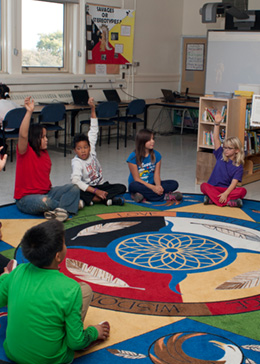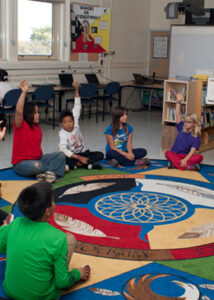Ontario’s plan to expand Indigenous learning in schools
Education leads to better understanding. In this regard, the Ontario Government is making changes to strengthen mandatory Indigenous-focused learning in school curriculum.
The announcement comes during the same week that Canada marks the first National Day of Truth and Reconciliation. In addition to the existing funding for the 2021-2022 academic year, the Ministry announced the investment of nearly $24 million in funding to provide supportive, culturally appropriate and safe education for Indigenous students.
Starting September 2023, educators will begin teaching Indigenous-based content in Social Studies to Grades 1 and 3. This measure builds upon the curriculum revisions implemented in 2018, in response to the calls to action put forward by the Truth and Reconciliation Commission.
Currently, the curriculum in Ontario includes Indigenous content in Social Studies for grades 4-6, and in History for grades 8 and 10. In 2018, the province introduced mandatory learning on residential schools in grades 8 and 10 as well.
In collaboration with Indigenous partners, Elders, Knowledge Holders and education stakeholders, the new learning curriculum will cover a number of topics. One area of focus will be the role of family and resilience in First Nations, Métis and Inuit communities and nations. It will also include their historical and contemporary realities.
Students will study the Indigenous peoples’ interrelationship and connection with the land in another segment of the program. The expanded curriculum will also explore opportunities for new learning on the residential school system and the reclamation and revitalization of identity, language, culture and community connections.
“We are committed to recognizing the contributions of First Nations, Métis and Inuit individuals, communities and nations to our province and country while learning their histories and cultures”, the Education Minister said via a press release.
These measures are in addition to the recently approved agreements of $3 million in funding over three years to strengthen partnerships with the Chiefs of Ontario and First Nation Provincial Territorial Organizations. Through these commitments, the aim is to support reconciliation and student success with the goal of higher graduation rates and better employment opportunities for First Nation students.
Critics argue these changes come three years too late and ask why it will take another two years to introduce the new curriculum. The Minister of Indigenous Affairs said in a statement: “Our government continues to work in collaboration with Indigenous partners to co-develop this curriculum to ensure Indigenous voices are at the centre of this important work”.
During the announcement, he emphasized the importance of developing the best method to ensure that the lessons and activities delivered are appropriate, suitable and well understood by all students and educators.
Photo credit: Toronto District School Board




